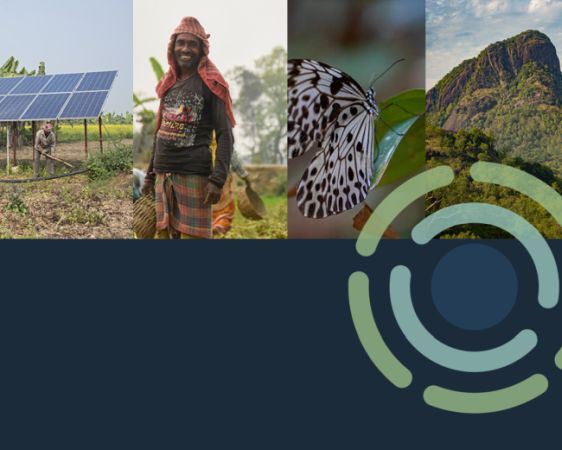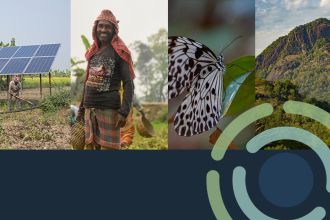01. November 2021

The IKI Small Grants Programme commissioned by the German Federal Environment Ministry (BMU) has selected 38 climate and biodiversity projects in its second international call for proposals. It will fund projects with 60,000 to 200,000 euros each. In addition, 6 national and regional institutions in partner countries will be supported in implementing their own call for proposals and funding lines.
This is already the second international call for proposals carried out by IKI Small Grants.
Small sub-national, national and regional organisations based in an ODA*-eligible country were able to apply directly for funding to implement local or regional climate and biodiversity projects. Over 500 applications from all over the world were submitted, from which 38 particularly ambitious and sustainable projects in 23 countries were selected for funding.
The total funding volume is 4.35 million euros and includes projects in the funding areas of mitigating greenhouse gas emissions, adapting to the impacts of climate change, conserving biological diversity, and conserving natural carbon sinks with a focus on REDD+. The projects are going to start in the next few months and are committed to e.g. protect endangered ecosystems, expand renewable energies, promote climate-neutral agriculture or environmental and awareness raising.
Many projects strengthen particularly vulnerable groups and explicitly aim to improve the situation of women. For example, a project in Tanzania aims to strengthen women in biodiversity conservation and involves them in the management of two coastal zones. In Indonesia, the power supply of a sustainable herb and spice cooperative is promoted through the rehabilitation of a micro hydropower plant. A mangrove and dry forest reforestation project in Guatemala will support private networks of protected areas to merge them into a conservation corridor. Another project from Kenya will promote the financing of solar-powered water pumps for smallholder farmers as borrowers through insured micro-credits, thus contributing to adapted agriculture and strengthening food security for the target group.
In addition to the individual projects, 6 national and regional funding institutions were selected and will receive up to 850,000 euros. They will implement their own call for proposals and funding lines for local projects and measures. For example, the National Development Bank Botswana would like to offer pro-rata funding for renewable energy and water-saving equipment for farms. In India, Pakistan and Tajikistan, the Aga Khan Foundation is planning to launch a call for proposals for innovative approaches by small and medium-sized enterprises (“Business Challenge”) in the land use sector. And in Ecuador, IKI Small Grants will support the National Biodiversity Institute to launch a school competition focusing on energy and water-saving installations, recycling systems, and school gardens. In addition to the provision of funds, the institutions are strengthened through intensive support in carrying out their own selection procedures.
“Small actors on the ground are the basis for effective climate action and biodiversity conservation worldwide. Through IKI Small Grants, we finance very specific projects and local solutions and at the same time support the selected organisations in developing even greater impact through networking and capacity development. The selected funding institutions also ensure that this approach to climate and biodiversity promotion is carried into their countries and regions,” says Nana Künkel, Head of IKI Small Grants, which is implemented by the Deutsche Gesellschaft für Internationale Zusammenarbeit (GIZ) GmbH.
IKI Small Grants is part of the International Climate Initiative (IKI) and is implemented by the Deutsche Gesellschaft für Internationale Zusammenarbeit (GIZ) GmbH. The Federal Ministry for the Environment, Nature Conservation and Nuclear Safety (BMU) supports this initiative on the basis of a resolution of the German Bundestag.
*ODA = Official Development Assistance

